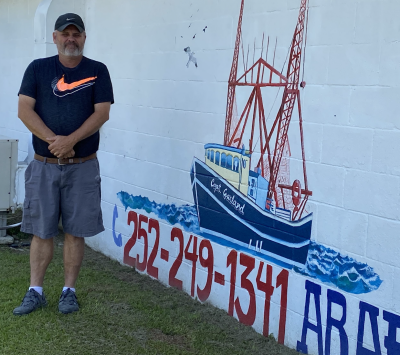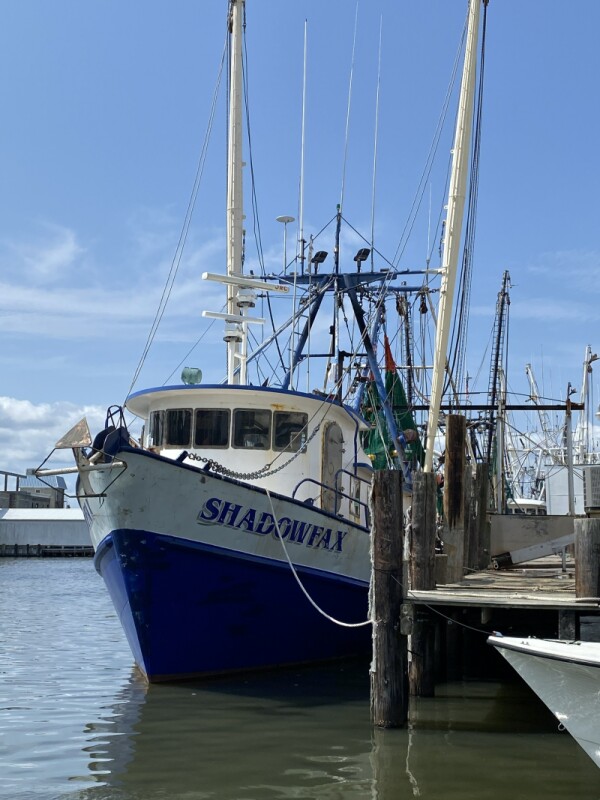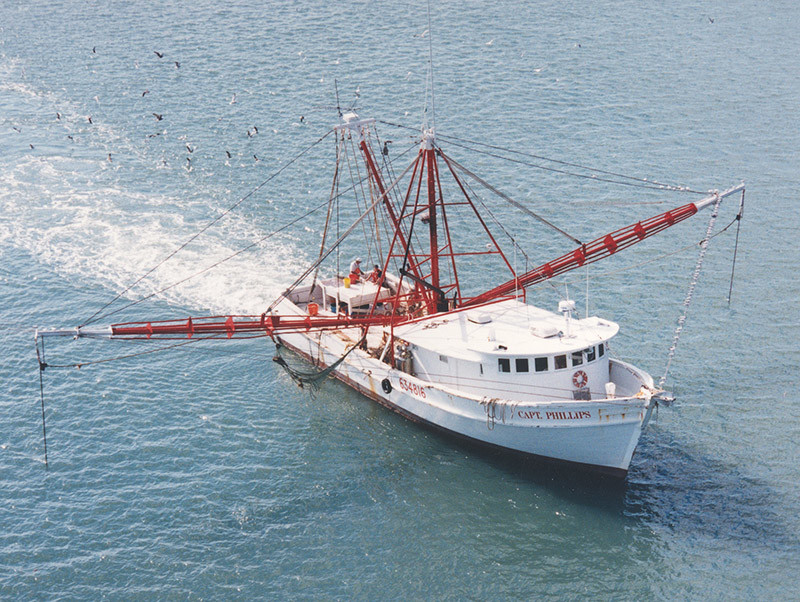A recent federal appeals court decision rejected arguments that North Carolina shrimpers are violating the federal Clean Water by discharging their bycatch overboard.
Seen as a significant win for the shrimpers as well as all commercial and recreational fishermen, the unanimous decision by the Fourth District Court of Appeals was handed down Aug. 7. The three-judge panel affirmed a previous lower court decision from September 2021 that was appealed by the plaintiffs, the NC Fisheries Reform Group.
The NC Fisheries Reform Group, recreational fisherman Joseph Albea and other anglers, had filed a citizen lawsuit alleging that certain named shrimpers in North Carolina are violating the federal Clean Water Act by discharging their bycatch overboard.
The anglers argued that bycatch being thrown back into the water is a pollutant and disturbing sediment with trawl nets is dredging, either of which, the group contended, would require commercial shrimpers to obtain a Clean Water Act permit.
The fisheries reform group, a Wilmington, N.C.-based nonprofit established in 2020, “to change how the State of North Carolina manages our public trust marine resources,” filed the lawsuit against Capt. Gaston LLC, Esther Joy Inc., Hobo Seafood Inc., Lady Samaira Inc., Trawler Capt. Alfred Inc., Trawler Christina Ann Inc., and Trawlers Garland and Jeff Inc.
The appeals court heard arguments on the case in fall 2022. This month the judges threw back the reform group’s claim.
“The Act forbids the unpermitted discharge of a pollutant. Returning bycatch to the ocean is not discharging a pollutant, so throwing it overboard without a permit is not forbidden by the Act,” Judge Julius Richardson wrote in the court’s opinion. “Likewise, because the trawl nets merely kick up sediment already present in the Sound, their use does not discharge any pollutants either. Accordingly, we affirm the district court’s dismissal of Fisheries Reform (Group) complaint.”
The ruling came as an immense relief to fishermen.
"This is more than being accused of polluting our own waters,” said Jeff Styron, whose family business Garland Fulcher Seafood in based in Oriental, N.C. “That’s the last thing our fisherman want to do – this is where we make our living.”
Styron believes a suit like this one is a perfect example of humans not realizing their impact on our waters.
“Instead of leaving things alone, there are too many people who think they’re protecting our waters while causing the exact opposite result. The people that know best are the fishermen who work on the water and protect those waters.” Styron says.

The court asserted that this case is a “major-questions” case that has significant political and economic consequences. In such cases, it’s usually the bureaucratic agency that has tried to assert broad, nationwide power, resting its authority on a provision that did not clearly authorize such as assertion.
“Here, the EPA is not asserting such a power. In fact, it’s not asserting anything since this is a citizen suit between private parties,” the court’s opinion notes. “But (the) Fisheries’ (Reform Group) is suing precisely because the EPA has not acted. Their suit is designed to compel EPA action.”
The district court dismissed the suit in 2021 because the Clean Water Act does not regulate bycatch — the state does — and decided that disturbing sediment with trawl nets does not violate the act.
The Clean Water Act establishes “the basic structure for regulating discharges of pollutants into the waters of the United States and regulating quality standards for surface waters,” the EPA explains.
“We affirm the district court’s decision that Fisheries Reform Group fails to plausibly allege that shrimp trawlers are violating the Clean Water Act by either (1) throwing their bycatch back into Pamlico Sound, or (2) disturbing sediment on the Sound’s floor with their trawl nets, thereby causing it to resettle,” Judge Richardson wrote in the panel’s opinion.
In the court’s explanation of the case, Judge Richardson commented that his daughter would be in violation if the plaintiffs’ arguments prevailed if she caught a fish with a minnow and threw it back.
"At argument, Fisheries (Reform Group) sought to assure me that the EPA would not exercise its discretion to lock her up or take her allowance. Small comfort,” the judge wrote. "Almost every commercial or recreational fishermen in America would be subject to EPA's new regulatory control."
The opinion goes on to say that anyone who fishes and after catching a fish and “releases it back into the ocean, would violate the Clean Water Act unless they first obtained a Clean Water Act permit alongside their ordinary fishing permits."
Skinner said he had spoken to a few of the defendants, and they were relieved.
“The big problem is, and I don’t think most people look at it this way, Mr. Albea and his group didn’t sue the EPA. They didn’t sue a state or federal agency. They sued individuals who were operating legally. You’re allowed to shrimp in Pamlico Sound,” Skinner said. This lawsuit “cost those people hundreds of thousands of dollars for nothing.”
“Why would the Coastal Fisheries Reform Group file a lawsuit that would have such dire consequences for commercial fishing families, eastern North Carolina and even the recreational fishing community?” Skinner added. “In our opinion they are blinded by their zeal to eliminate an immensely proud and historical group of families from producing a healthy source of protein for the American consumers.”








